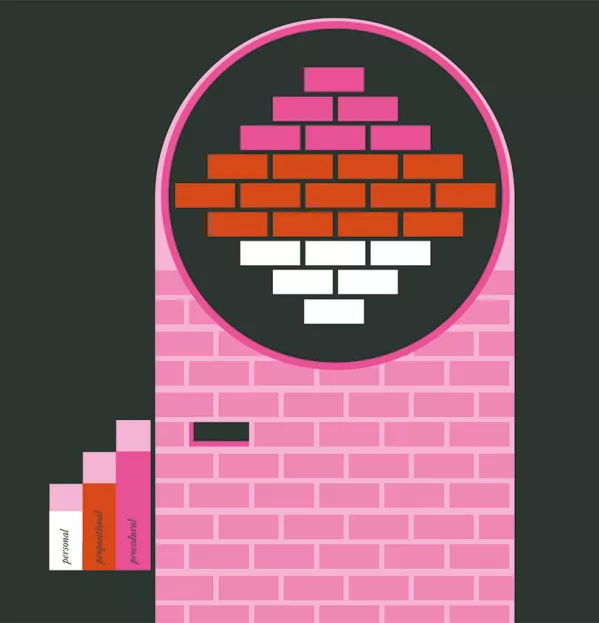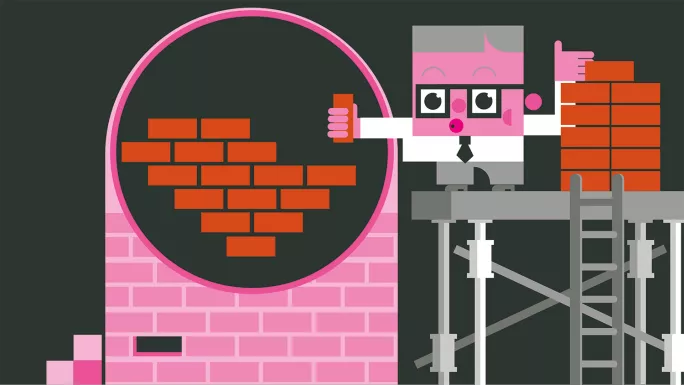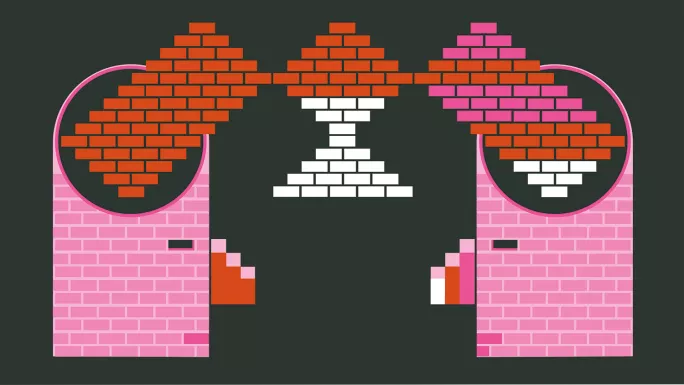
Safe in the knowledge?

When my husband moved to this country, he took the new citizenship test. It predominantly comprises questions based on Britain’s history, such as “Who was Anne Boleyn?” and “What is the Bayeux Tapestry?”
While these questions test factual knowledge (and do this well), they don’t test how good you are at surviving in this country. They don’t tell you that it is necessary to book your train tickets in advance (a recent error on his part caused marital tension), the proper way to queue, or the kinds of things that you can get done in the Post Office. And there’s a difference between having the required knowledge and knowing how to use it.
Knowledge, in short, is tricky. So at a time when a “knowledge-rich curriculum” is being talked up as the route to salvation for every student, it is worth asking what sort of knowledge, exactly, is being championed and whether it is really possible to make it work in the system within which we teach.
Knowledge about knowledge
When talking about knowledge, we need to be clear about which kind of knowledge is in focus. Is it propositional knowledge? These are knowledge claims that take the form “S knows that P”. For example, Mary (S) knows that Paris is the capital of France (P).
But there are also other kinds of knowledge that are important in an educational context: personal knowledge claims take the form “S knows Q”, for example, Mary knows Mrs White; and procedural knowledge claims take the form “S knows how to R”, such as Mary knows how to ride a bicycle.

Propositional knowledge constitutes fact learning - students knowing lots of “stuff” - and is considered to be in the traditionalists’ domain. In contrast, procedural knowledge - the “knowing how” - is more associated with progressive teaching, the “you can always look it up” brigade, as they are disparagingly referred to by US educationalist ED Hirsch (1).
The debate between traditional and progressive education can be boiled down to which form of knowledge is deemed to be the most important. But I don’t intend to explore that debate any further - it has been tackled quite enough already. What I’m going to discuss is the knowledge-rich curriculum.
Two shifts have led to the knowledge -rich curriculum attracting such a focus: one is political, the other scientific.
First, schools are now experiencing the full force of the policies brought in by former education secretary Michael Gove. These involved a shift toward traditional methods of education, with their associated focus on propositional knowledge and rote learning. For example, he oversaw the removal of coursework in subjects such as English, and the massive increase in content in maths and the sciences at GCSE.
As a result, educational thinkers have focused their attention on how to do this content-heavy kind of teaching well; the knowledge-rich curriculum, which promotes maximising students’ knowledge base, represents the most sophisticated attempt.
Second, as part of their efforts, educational thinkers have been stimulated by the increased accessibility of cognitive research into how students learn. Books such as Daniel Willingham’s Why Don’t Students Like School?, which help teachers to apply research in their own practice, have proved extremely popular, and many of the ideas presented by cognitive scientists have been adopted as part of the knowledge-rich approach to schooling.
So what do these educationalists think the knowledge-rich curriculum should look like? Cognitive scientists emphasise the importance of students having a strong background knowledge for learning: new knowledge builds on existing knowledge. This message has been taken forwards by the campaign Parents and Teachers for Excellence, which argues that the knowledge-rich curriculum benefits disadvantaged students by helping them to build the kind of background knowledge that they have limited access to outside the classroom (2). It’s hard to understand the causes of the Second World War, if you don’t have a firm grasp of European geography, for example (3).
In order to embed this knowledge, students need spaced retrieval practice, which helps them to recall propositional content, and plenty of interleaving practice, so that they learn the procedural knowledge of how to select the right problem-solving strategy (4).
Crucially, the knowledge-rich curriculum that is being sold today combines the best of propositional and procedural knowledge. Advocates argue that propositional knowledge is foundational; without it, procedural knowledge is, essentially, meaningless. However, they extol the virtues of students having procedural knowledge: how to use problem-solving strategies, how to select the right approach, how to metacognise, and so on. It wants so much more than for students just to have facts at their disposal.
And that’s all great. But the knowledge-focused paradigm we are currently operating under is a pale shadow of its muse. Although there are a number of reasons for this, I am going to focus on two key areas: selective interpretation of the cognitive science research and the pressures of high-stakes assessment determining pedagogy.
Selective use of cognitive research
One of the ways cognitive research has been misused in the knowledge-focused curriculum is down to an over-emphasis on content delivery. This idea derives from the well-evidenced principle that having a large background knowledge makes it easier to gain new knowledge. This has led to a curriculum that aims to deliver a huge amount of propositional content to give students a broad foundation for future learning.
However, this neglects the recommendation that the knowledge we teach students should be meaningful (5). Willingham suggests that educators should prioritise conceptual knowledge in curricula; teaching coherent groups of propositional and procedural knowledge, and drawing out the abstract connections between them. The cognitive science suggests that for students to build up conceptual knowledge, they need to see lots of real-world examples that they can relate to. This means extended focus on a particular concept from a range of perspectives.
So, in some cases, the propositional content is less important in itself than whether or not it leads students to an understanding of the correct conceptual framework.
Another issue with the interpretation of cognitive research has been the dismissal of procedural knowledge as a high-level skill, inappropriate for the classroom.
For example, Willingham emphasises that students can’t think like historians; without the prerequisite foundational knowledge, they can only think like students of history. So, procedural knowledge has been sidelined in knowledge-focused curricula. This is a mistake for a number of reasons.

First, it confuses both the ends and the means. Development of relevant procedural knowledge, such as how to carry out scientific investigations, is an important end in a knowledge-rich curriculum, but carrying out investigative work is not the only means by which to achieve this. So procedural knowledge does not need to be learned from doing; propositional knowledge can be.
Second, students can learn procedural knowledge within definite parameters: they may not be able to think like historians in a holistic sense, but they can work on different aspects of the procedural knowledge in particular tasks so that it becomes part of their background knowledge upon which to build. In ordering sources of evidence from most to least reliable, for example, students learn how to evaluate evidence - procedural knowledge they would need as historians.
The other major problem area is the assessment system. As seen in the citizenship test, it is easier to assess propositional knowledge that procedural knowledge: it is less subjective. So, in drawing up a mark scheme, the examiners can account for all the propositional knowledge that a student needs to give an excellent answer to a question.
Since teachers are under significant pressure to ensure that students perform in high-stakes examinations, their teaching will conform to the assessments. This means that if testing is skewed toward propositional knowledge, teaching will be, too.
We often gloss over that it’s easier to teach propositional knowledge. For example, in the sciences, a synoptic practical paper tests students’ understanding of core practicals that they have carried out at A level. I have heard countless times from teachers that it is more time efficient to teach students the answers to the questions than to do the practical. Students are taught the prescribed answers as propositional knowledge - “S knows that the answer to this 2-mark question is X and Y” - rather than as the procedural knowledge about how to successfully carry out the experiment.
This is not limited to the sciences. Students can be taught a particular analysis for their text in English, arguments for and against a position in religious studies of geography, or the stages in the approach they have been taught for analysing sources in history.
Of course, in the main, teaching students how to break down problems is just good teaching: we should be giving students strategies for analysing sources, and modelling how to breakdown and attach different ethical positions. This is what historians and philosophers do. But when disempowered teachers use it to save curriculum time rather than to improve students’ learning, it seriously misconstrues the aims of the knowledge-rich curriculum.
Breadth over depth
So, selective use of cognitive research, and ease of assessment have led to a knowledge-focused, not knowledge-rich, curriculum. The new “tougher” GCSEs and A levels have massively increased content for teachers to get across. If my Twitter feed is anything to go by, teachers are finishing their courses later than ever as they try to pack in all that extra breadth.
In the Japanese education system, as well as in other high-performing international systems, there is an increased focus on depth of learning over breadth (6). Curricula are slimmed down in terms of content, and schools often have autonomy over the propositional content, so long as students acquire the required conceptual understanding.
This is echoed by Tim Oates’ commentary on the failings of the national curriculum, which criticises the excessive breadth required, and the lack of focus on the conceptual content, leading to disjointedness in the learning experience for students (7).
Mathematics Mastery, a UK programme based on curricula in Shanghai and Singapore, follows the depth over breadth principle: “The challenge comes from investigating ideas in new and complex ways, rather than accelerating through new topics” (8).
At first glance, slimmed-down propositional content appears to lead to a situation in which students may not have the breadth of propositional knowledge to engage in further learning with sufficient ease, but I believe this is a mistake: so long as the conceptual content is sufficiently broad, the breadth of foundational knowledge is not a limiting factor.
One of the arguments in favour of a knowledge-rich curriculum is that it is particularly beneficial to disadvantaged students. This may well be the case, but the ways in which the knowledge-focused curriculum fails to meet its aims impact on disadvantaged students in particular (9).
First, as procedural knowledge gets squeezed out, disadvantaged students are, well, disadvantaged. In particular, they are less likely to engage in co-curricular activities, further widening the knowledge gap. These might include playing musical instruments; the dramatic arts; science, technology, engineering and maths clubs; creative writing groups, etc.
Such activities provide participants with a wealth of procedural knowledge, which in turn enriches their curricular knowledge, strengthens their links between different aspects of knowledge, and embeds deeper conceptual learning.
If procedural knowledge is not taught as part of the curriculum, it becomes the domain of the privileged.
Second, personal knowledge (knowledge of the form “S knows Q”) has also been squeezed out of the curriculum by excessive focus on propositional content. The social impact of education is formative in students’ lives: they learn how to take on different roles and perspectives through the people they come into contact with at school, as well as the historical or fictional characters that they “meet” when reading or in drama classes, for example.
Few consider personal knowledge unimportant. However, it has largely been dismissed in dialogue about knowledge in education. Disadvantaged students are less likely to know a wide range of people or access a variety of reading materials. Consequently, schools have a responsibility to provide students with this opportunity, which cannot be tackled without recognition of the importance of personal knowledge.
Bridging the gap
The knowledge-rich curriculum cannot live up to its promise under the current system, so what are the changes that could help to make it a reality?
* An increased focus on depth and mastery over breadth in curriculum design. At the moment the excessive content is driving out real knowledge. Slimmed-down curricula would allow teachers to ensure that students master the relevant procedural knowledge within the subject’s propositional framework.
* Examinations that assess the full range of knowledge types that the curriculum intends students to be taught. The examination system sets the minimum bar for the knowledge students are expected to learn. High-stakes assessment needs to include procedural and personal knowledge if these are to be valued aspects of the curriculum. How this might look in reality is the million-dollar question (personally, I’d love to open up dialogue about students being examined by viva voce).
* Curricula that prescribe conceptual content rather than contextual content. Following the Japanese model, schools could be given more choice about the foundational knowledge they use to teach abstract concepts. Schools would be able to use content that is meaningful to students in their particular educational context.
* Curricula that explicitly include the development of personal knowledge. There are lots of ways that this can be done (and many of them are already done exceptionally well in schools). For example, by introducing mentoring programmes for students with other members of the community, by improving students’ access to the library and having reading groups to discuss particular books and characters, including regular “personal knowledge” essays within teaching schemes, or by providing students with opportunities to get involved in drama.
* Access to co-curricular activities for all students. For co-curricular activities to traverse the class divide, they need to be free, timetabled into the school day (which might require a radical rethink of the school day), and viewed as an essential aspect of students’ learning (not an unwelcome extra supervision session for the overstretched teacher).
I am not against the knowledge-rich curriculum per se; I just want a fair chance to teach the kind of curriculum that I’ve been reading about. I want to bridge that gap. And under the current system, it’s just not plausible.
Emily Seeber is head of science at Bedales School in Hampshire
You need a Tes subscription to read this article
Subscribe now to read this article and get other subscriber-only content:
- Unlimited access to all Tes magazine content
- Exclusive subscriber-only stories
- Award-winning email newsletters
- Unlimited access to all Tes magazine content
- Exclusive subscriber-only stories
- Award-winning email newsletters
You need a subscription to read this article
Subscribe now to read this article and get other subscriber-only content, including:
- Unlimited access to all Tes magazine content
- Exclusive subscriber-only stories
- Award-winning email newsletters
- Unlimited access to all Tes magazine content
- Exclusive subscriber-only stories
- Award-winning email newsletters